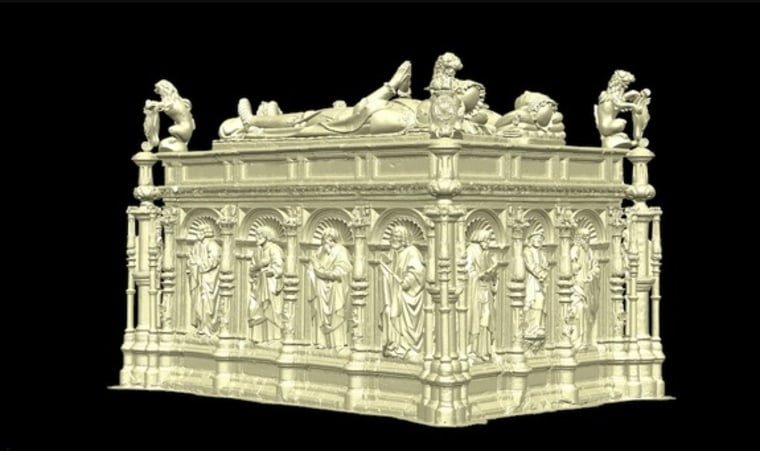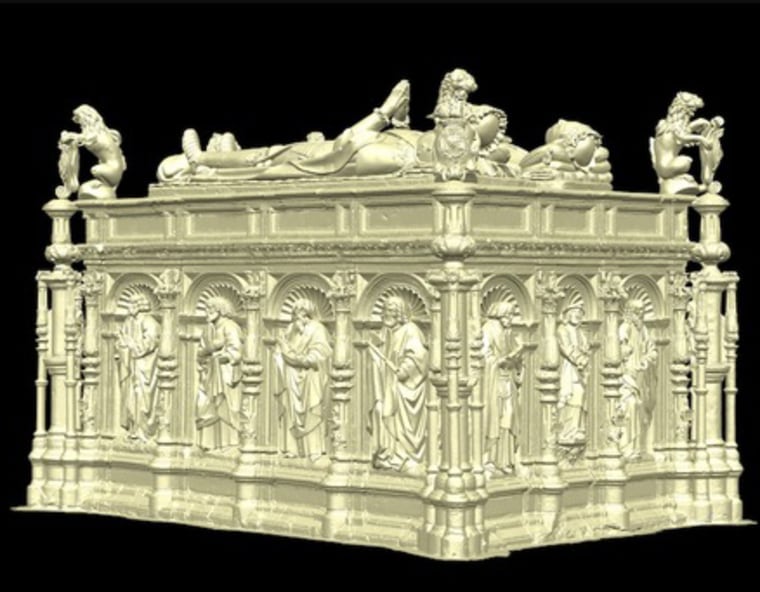
Using 3-D modeling, British researchers have digitally reunited two elaborate Tudor-era tombs with some of their original parts that were lost during King Henry VIII's anti-Catholic offensive.
Thomas Howard, third Duke of Norfolk, commissioned the monumental tombs in the 16th century. They were planned for the Thetford Priory, where many members of the prominent and steadfastly Catholic Howard family had been buried.
The Duke, who was the uncle of two of Henry VIII's ill-fated wives, Ann Boleyn and Catherine Howard, wanted one of the tombs for himself. The other was reserved for Henry VIII's illegitimate son, Henry Fitzroy, Duke of Richmond. [Christianity: 8 Religious Relics Revealed]
But after Henry VIII broke with the Roman Catholic Church, creating a Church of England separate from papal rule, he dissolved monasteries, friaries and priories across the country. Thetford Priory was dissolved in 1540, before the tombs were finished.
Some parts of the monuments were salvaged and the pair of tombs was later completed, but in a different style than originally planned. They remain in St. Michael's Church, in Framlingham, Suffolk, today. Other original pieces were left in the ruins of Thetford Priory and were found in archaeological excavations centuries later and have ended up in various museums, including the British Museum.
Using those scattered artifacts, drawings in 16th-century manuscripts and 3-D techniques, researchers have pieced together a digital picture of what the tombs may have looked like if British history had taken a different turn.
"Using 3-D laser scanning and 3-D prints, we have — virtually — dismantled the monuments at Framlingham and recombined them with the parts left at Thetford in 1540, to try to reconstruct the monuments as they were first intended, in a mixture of the virtual and the real," researcher Phillip Lindley, of the University of Leicester, said in a statement.
Their work is part of an exhibition at the Ancient House Museum in Thetford, on display from Sept. 7, 2013, to March 29, 2014.
Follow Megan Gannon on Twitter and Google+. Follow us @livescience, Facebook& Google+. Original article on LiveScience.
